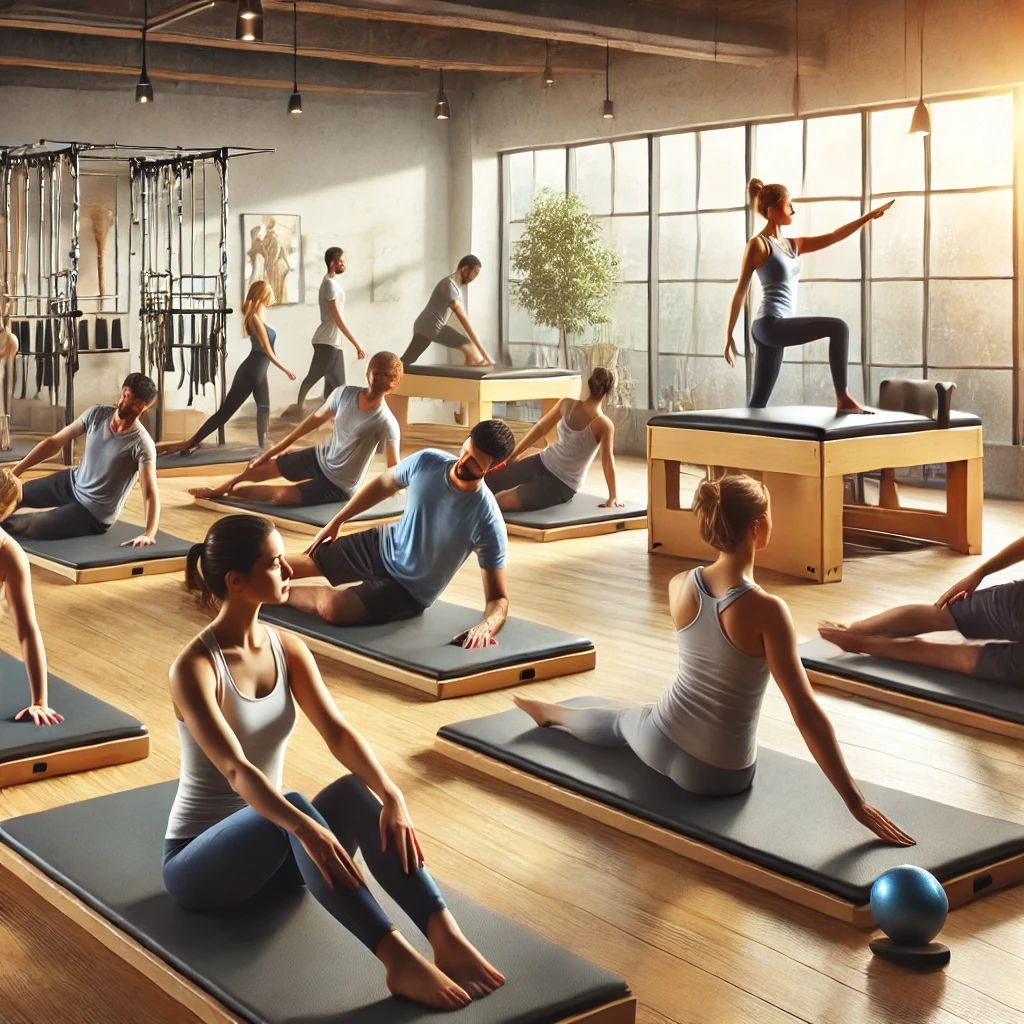
In the bustling world of fitness trends, Pilates has stood the test of time, offering a unique blend of physical and mental benefits that cater to a wide range of fitness enthusiasts. Whether you’re a seasoned athlete or someone just beginning their fitness journey, Pilates can provide profound improvements to your overall well-being. Let’s explore the numerous benefits of Pilates and why it might be the perfect addition to your workout regimen.
Strengthening the Core
One of the most celebrated benefits of Pilates is its focus on core strength. The core, often referred to as the powerhouse, includes the muscles of the abdomen, lower back, hips, and pelvis. A strong core is essential for overall body strength and stability.
Enhanced Stability: Pilates exercises are designed to engage the deep core muscles, providing a foundation of stability for all movements. This not only improves posture but also reduces the risk of injuries in daily activities and other forms of exercise.
Improved Balance: By strengthening the core, Pilates enhances balance and coordination. This is particularly beneficial for older adults and athletes who require precise control over their movements.
Promoting Flexibility
Pilates emphasizes controlled, smooth movements that stretch and lengthen the muscles. This focus on flexibility can lead to a more supple and resilient body.
Increased Range of Motion: Regular practice of Pilates can significantly increase the range of motion in your joints. This enhanced flexibility makes everyday tasks easier and can improve performance in other physical activities.
Muscle Elasticity: Unlike traditional strength training that can lead to bulky muscles, Pilates promotes long, lean muscles. This muscle elasticity helps in maintaining a youthful, agile physique.
Enhancing Mental Well-being
The benefits of Pilates extend beyond the physical, offering significant mental health benefits as well.
Stress Reduction: Pilates encourages mindfulness and focused breathing, which can help reduce stress levels. The meditative aspect of Pilates helps quiet the mind and promotes a sense of calm and relaxation.
Improved Concentration: The practice of Pilates requires concentration and control, which can enhance your ability to focus in other areas of life. This heightened concentration can lead to improved productivity and mental clarity.
Supporting Weight Loss
While Pilates might not burn as many calories as high-intensity workouts, it plays a crucial role in a comprehensive weight loss strategy.
Muscle Tone: Pilates helps build lean muscle mass, which can increase your resting metabolic rate. This means you burn more calories even when you’re not exercising.
Consistency and Enjoyment: One of the keys to successful weight loss is finding an exercise routine you enjoy and can stick with. Many people find Pilates enjoyable and less intimidating than some other forms of exercise, leading to greater consistency and long-term results.
Rehabilitation and Injury Prevention
Pilates is renowned for its rehabilitative benefits and its role in injury prevention.
Low-Impact Exercise: The low-impact nature of Pilates makes it an excellent choice for those recovering from injuries or looking to prevent them. The controlled movements put minimal strain on the joints and reduce the risk of overuse injuries.
Alignment and Symmetry: Pilates promotes proper body alignment and muscle symmetry, addressing imbalances that can lead to injuries. This alignment is particularly beneficial for individuals with chronic pain or those recovering from surgery.
Enhancing Athletic Performance
For athletes, Pilates offers targeted benefits that can enhance performance in various sports.
Core Strength and Stability: A strong core is vital for athletic performance. Pilates enhances core strength and stability, providing a solid foundation for powerful and efficient movements in sports.
Body Awareness: Pilates improves proprioception, the awareness of body position in space. This heightened body awareness can enhance technique and prevent injuries in athletes.
Adapting to All Fitness Levels
Pilates is highly adaptable and can be modified to suit all fitness levels, from beginners to advanced practitioners.
Personalized Approach: Instructors can modify exercises to match your fitness level and specific needs, ensuring you get the most out of each session. Whether you’re looking to ease into a fitness routine or challenge yourself further, Pilates can be tailored to meet your goals.
Progressive Difficulty: As you become more proficient in Pilates, you can gradually increase the difficulty of the exercises. This progression keeps you challenged and engaged, continuously improving your strength, flexibility, and overall fitness.
Social and Community Benefits
Joining a Pilates class can also provide social benefits and a sense of community.
Group Classes: Participating in group Pilates classes offers an opportunity to connect with others who share similar fitness goals. The camaraderie and support from classmates can enhance your motivation and commitment to your fitness routine.
Positive Environment: Pilates studios often foster a welcoming and supportive environment, making it easier to stay committed and enjoy your fitness journey.
Conclusion
The benefits of Pilates are vast and varied, encompassing physical strength, flexibility, mental well-being, weight loss support, injury prevention, and enhanced athletic performance. This versatile exercise method is suitable for all fitness levels and can be tailored to meet individual needs and goals. By incorporating Pilates into your fitness routine, you can achieve a balanced, strong, and resilient body, while also nurturing your mind and spirit. Embrace the transformative power of Pilates and discover how it can elevate your health and well-being.


